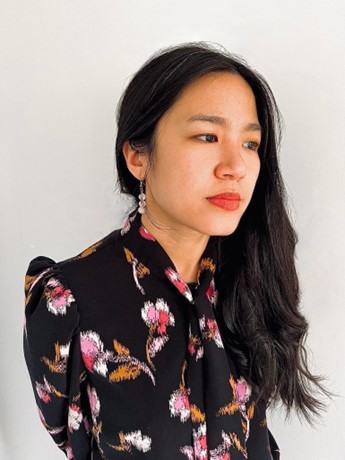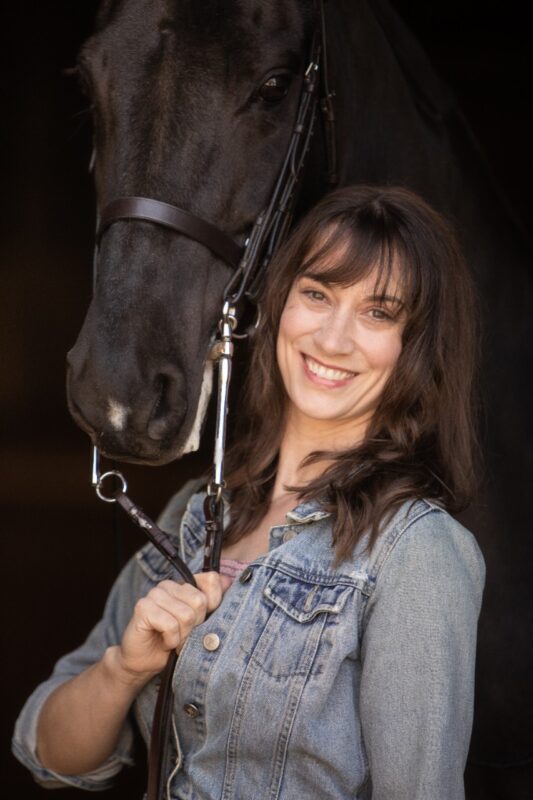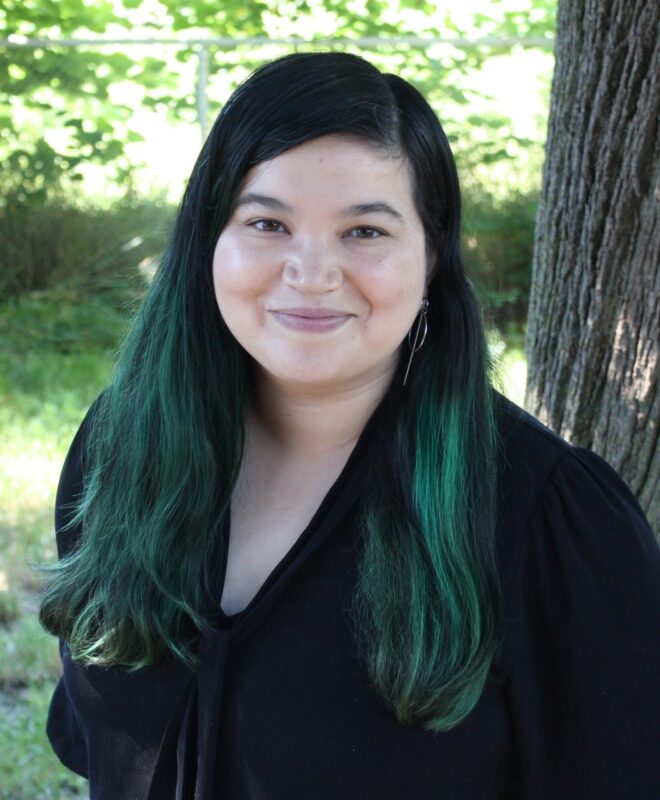One-Question Interviews: Marianne Chan, Emma Hudelson and Maggie Su on Creating an Artistic Legacy
7 Minutes Read Time



Assistant Editor Blessing Christopher: The Visiting Writers Series returns this week with readings by former UC creative writing Ph.D. students Marianne Chan, Emma Hudelson, and Maggie Su. The event, sponsored by the Robert and Adele Schiff Fund for Contemporary Fiction, will be held in the Elliston Poetry Room on Thursday, September 18, 2025.
I reached out to our visiting writers to ask about their hopes for the future. In today’s fast-paced world, the question of artistic legacy is one all artists must confront. As writers, even when we are reluctant to take a step back to get a comprehensive view of the big picture, the day-to-day decisions we make around our creative endeavors can point to a willingness to cater to future audiences.
My question was:
Annie Dillard’s “This is the Life” is one essay I’ll always revisit. In the piece, Dillard enjoins us to “scale your own weft and see time’s breadth and the length of space… [to] see the way the fabric both passes among the stars and encloses them.” Elsewhere, she introduces some questions to accompany the reflective exercise: “So the illusion, like the visual field, is complete… What was that, that life? What else offered? What else is there, or was there, or will there ever be?”
If you were to apply the same retrospective lens to your career, what would you want your body of work to say about your time here?
Chan: I’m thirty-seven, and I’ve dedicated my life to writing for about fifteen years. What I’ve learned from that time is that what I write and how I write is beyond my control. While I wish I could shape my career as a writer, more than anything, it has shaped itself. My poems continue to surprise me. My friend Olivia told me that she simply “sets the table for the muse” and hopes for the best, and as a poet, that has also been my process—to create openings and invitations for the writing to come. (I know this must sound woo-woo.) The truth is that I read and write as a way to gain something, to gain an answer to why I’m here, to better ask questions, to better understand. Perhaps, my answer to your question is that I predict that my body of work will show that I lived a life of confusion! Or, I think—and maybe this is what I hope for—that when I look back at the work at the end of my life, I will find a speaker—a writer—striving, humbly, to understand this great mystery of what it means to be human on earth.
***
Su: During long car rides in middle school, I used to daydream incessantly about my funeral. I would stare out the window and imagine my unrequited crushes, always floppy-haired boys who didn’t know I existed, falling one by one to their knees in front of my gravestone. “I should’ve just told her how I felt,” they wept. “But now it’s too late.”
Nowadays, I try not to dwell too much on my legacy as it often feels self-indulgent. The beautiful thing about writing stories and getting them published is that they exist outside of you. My novel’s been published in countries I’ve never been to. Its critical and commercial reception is out of my hands. It’s freeing.
That being said, my work is written at the intersection of AAPI and speculative literature, and I’m indebted to writers like Karen Tei Yamashita, Chang-Rae Lee, and Ling Ma who use speculative conceits to twist familiar scripts. I would love for my work to be in conversation with the writers I admire. And even though I know I can’t control who cries at my funeral, I do hope that perhaps my novel can spark a feeling of recognition in a reader or, maybe, make them feel less alone. If my work can do that, it’s more than enough.
***
Hudelson: This past weekend, I mused to my husband about the way my first website, created at age twelve on Geocities—remember Geocities? All that blinking HTML and big text blocks?—predicted my future career.
“What was it about?” he asked.
“Mostly books and horses.”
Now, I get to say that my first book is about horses. Forever. No matter what book I write next, I’ve debuted as a horse girl, cementing my twelve-year-old dreams. I’ve grown up, but I’m the same nerd I was in sixth grade, typing about flowing manes and tails on an Apple computer. Some things don’t change, but others do. As a braided biography/memoir, my first book is considered a hybrid, and I learned the trick of blurring genres here in the UC PhD program. Why shouldn’t the biographer be a character in the biography? Doesn’t her experience with the subject shed a brighter light on it? Why can’t a list also be an essay? I’ve always been drawn to forms that defy genre, even before I understood the impulse. After I got into an MFA program with a poetry portfolio, my poems became so prose-like and confessional that my professors suggested I try nonfiction.
At UC, where I entered as a literary nonfiction writer, I became obsessed with lyric essays, one of the best genre-blurring modes out there. Some of my flash lyric essays could be published as poetry, and have been. While I’m still a horse girl who wants nothing more than to share fun horse facts with anyone who will listen, my body of work is always shifting, pushing at the containers around it. We like to say that genre doesn’t matter, but it does. Where a book is shelved impacts what audience it reaches, so the shifting I’m so stuck on probably doesn’t help me much, at least not in terms of book sales or popularity. It does help my work, though. Giving myself permission to experiment lets my work stay playful, even in a genre as serious as biography, and even when I’m still writing about a subject I’ve been obsessed with for thirty years. Playfulness is important. Every horse girl knows that horses need to be turned loose sometimes, and I guess I try to apply that principle to my writing, too.
Marianne Chan grew up in Stuttgart, Germany, and Lansing, Michigan. She is the author of All Heathens (Sarabande Books, 2020), which was the winner of the 2021 GLCA New Writers Award, and Leaving Biddle City (Sarabande Books, 2024). Her poems have appeared in Poetry, Best American Poetry, New England Review, Kenyon Review, Michigan Quarterly Review, and elsewhere. She is an assistant professor of creative writing at Old Dominion University and teaches poetry in the Warren Wilson College MFA program for Writers.
Emma Hudelson is a nonfiction writer and an Assistant Professor of English at Eastern Kentucky University, where she is core faculty in the Bluegrass Writers Studio. Sky Watch: Chasing an American Saddlebred Story is her first book, and it received the 2025 Equine Media Award and was a finalist for the Foreword Indies Book of the Year. Her work can also be found in the Cincinnati Review, the Chattahoochee Review, and the Rumpus. Emma holds a PhD in creative writing from the University of Cincinnati and an MFA in creative writing from Butler University, where she directed the Writing for Wellness program. She has two daughters, one husband, three dogs, one cat, and one horse.
Maggie Su is the author of the novel Blob: A Love Story (Harper, 2025). She holds a PhD in fiction from University of Cincinnati and an MFA from Indiana University. Her short fiction has appeared in New England Review, DIAGRAM, TriQuarterly Review, and elsewhere. She lives in South Bend, Indiana, with her partner, daughter, cat, and turtle.
